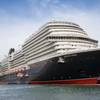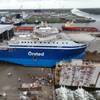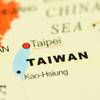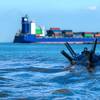Chief of Naval Operations (CNO), Adm. Mike Mullen, addressed members of the Surface Navy Association (SNA) Jan. 10 at their 18th Annual National Symposium held at the Hyatt Regency in Arlington, Va.
Addressing the SNA for the first time since taking the helm as CNO, Mullen said the Navy’s view of sea power needed to expand, incorporating both traditional and nontraditional missions.
"I believe sea power as a notion has become way too narrowly defined," Mullen said. "For far too long it's been centered in my view on one of two things - programs and blue water, building big things and putting them to sea."
Mullen called for a balanced fleet with the capability to win the big and small wars. "I have probably talked to upwards of 15,000 Sailors in the course of more than a half-dozen trips at sea and ashore. And the vast majority were involved in operations I would consider green or brown water in nature," he explained.
"We’re standing up the Naval Expeditionary Combat Command this month to wrap their hands around what I would call the “below the line” skill sets in our service -- EOD [Explosive Ordnance Disposal], Seabees, master-at-arms and the Expeditionary Logistics Force to name a few," CNO added.
The Navy's mission is growing every day as the service assumes command of joint task forces, security and relief operations worldwide. "This is not the way we have traditionally thought of sea power, but it is sea power for this new century and we are going to harness it," CNO said.
Mullen then moved to his second point, the maritime domain, which he described as "getting smaller every day."
"There’s still the same amount of water in the world … it still takes you about the same amount of time to get across the pond, but there isn’t much happening out there that doesn’t affect most nations," he said, referring to the increased emergence of trafficking, piracy and smuggling.
"You may have heard me talk about the 1,000-ship navy, about a world fleet of like-minded navies and coast guards teaming up in a sort of global neighborhood watch," CNO explained. “People realize our fates are lashed together now more so than at any other time in history.”
He highlighted the Maritime Security Operations being conducted in the Persian Gulf, which includes 45 ships from seven nations, all led by a British commodore embarked aboard USS Cape St. George (CG 71), an U.S. Navy cruiser.
"They conduct a broad spectrum of security missions all over the Gulf, from search and seizure to coastal patrols and they do it extremely well. Each navy brings to the effort what they can, where and when they can," he explained.
Mullen said he believes maritime cooperation must extend beyond this, and include outside agencies, governmental and nongovernmental, and the Navy's sister services, the Marine Corps and Coast Guard.
“Next to the Marine Corps, I view our relationship with the United States Coast Guard as the single most critical relationship we can possibly have when it comes to securing the maritime domain. We talk a lot about the Navy-Marine Corps Team. Well, we’re going to also start talking about the Navy-Coast Guard Team.”
Getting a handle on all this change requires discipline and the ability to control requirements, according to the CNO.
"Ideally, they [requirements] come from combatant commanders and, in the Navy, from Fleet Forces Command and, of course, from the Marine Corps -- but sometimes they come simply from the promise of new technology," Mullen said.
He said he believes in the power and in the genius of the country's industry, but "we can't afford every new gadget, and we can't afford the 'Star Wars' version of every new idea."
Challenges abound when considering requirements, and Mullen said that shipbuilding is a case in point. "We had only four ships in the FY [fiscal year] '06 budget, we’re at 280 ships total right now and that’s just not enough. We’re as low as I’m comfortable going."
"At some point we need to start building a new Navy, a new fleet designed to meet the challenges of tomorrow - big an small - as best we see them," he added. "Again, two challenges, one fleet."
Sponsored Content
Chris-Marine’s solutions help to prolong engine lifetime

Subscribe for
Maritime Reporter E-News
Maritime Reporter E-News is the maritime industry's largest circulation and most authoritative ENews Service, delivered to your Email five times per week










